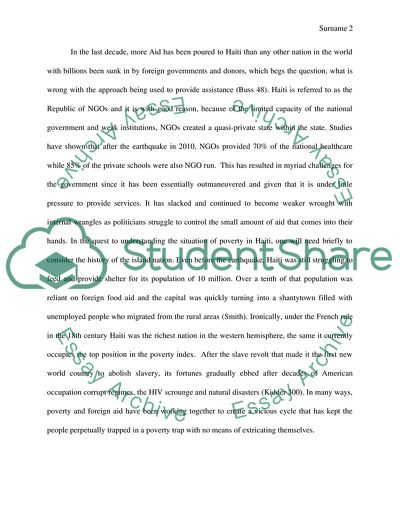Cite this document
(Haiti: Poverty Challenge Essay Example | Topics and Well Written Essays - 1250 words, n.d.)
Haiti: Poverty Challenge Essay Example | Topics and Well Written Essays - 1250 words. https://studentshare.org/politics/1839679-how-to-alleviate-poverty-in-haiti
Haiti: Poverty Challenge Essay Example | Topics and Well Written Essays - 1250 words. https://studentshare.org/politics/1839679-how-to-alleviate-poverty-in-haiti
(Haiti: Poverty Challenge Essay Example | Topics and Well Written Essays - 1250 Words)
Haiti: Poverty Challenge Essay Example | Topics and Well Written Essays - 1250 Words. https://studentshare.org/politics/1839679-how-to-alleviate-poverty-in-haiti.
Haiti: Poverty Challenge Essay Example | Topics and Well Written Essays - 1250 Words. https://studentshare.org/politics/1839679-how-to-alleviate-poverty-in-haiti.
“Haiti: Poverty Challenge Essay Example | Topics and Well Written Essays - 1250 Words”. https://studentshare.org/politics/1839679-how-to-alleviate-poverty-in-haiti.


